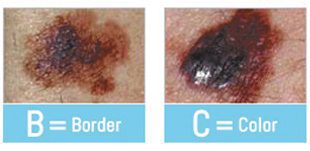By Dr. Aneley Yegezu Hundae, M.D., FACC


Understanding Cholesterol and Its Role
Before diving into the guidelines, it’s crucial to understand cholesterol and its role in cardiovascular health. Cholesterol is a waxy substance produced naturally by the liver and is also found in certain foods. While cholesterol is necessary for various bodily functions, excessive levels can lead to the buildup of plaque in the arteries, increasing the risk of heart disease, heart attacks, and strokes.
The ACC’s Approach to Cholesterol Management
The American College of Cardiology’s guidelines on cholesterol management emphasize a comprehensive approach to prevent cardiovascular events. The guidelines emphasize a shift from a specific focus on low-density lipoprotein (LDL) cholesterol levels to a broader assessment of overall cardiovascular risk. This approach takes into account factors such as age, sex, race, blood pressure, smoking status, and diabetes to determine an individual’s risk profile.
The guidelines outline four major groups for prevention of cardiovascular disease, each with different LDL cholesterol goals: patients with clinical atherosclerotic cardiovascular disease (ASCVD), patients with very high-risk conditions, patients with diabetes aged 40-75 years, and patients with an estimated 10-year ASCVD risk greater than 20%.1
In terms of treatment, the guidelines emphasize the use of statins as the primary medication to reduce LDL cholesterol levels. Statins have been proven to be effective in reducing cardiovascular events in various patient populations. Additionally, the guidelines highlight the importance of lifestyle modifications, such as a heart-healthy diet, regular physical activity, smoking cessation, and weight management, as crucial components of cholesterol management.
Recent Updates and Controversies
Guidelines are constantly evolving as new evidence emerges. Recent updates to the ACC’s cholesterol guidelines include a focus on non-statin therapies for patients who require additional cholesterol-lowering treatments. These may include drugs like ezetimibe or PCSK9 inhibitors, which can be considered for patients who are unable to reach their LDL cholesterol goals despite optimal statin therapy.
Controversies surrounding cholesterol guidelines primarily revolve around the optimal thresholds for treatment and the utilization of newer cholesterol-lowering medications. Critics argue that the guidelines may overestimate an individual’s risk, leading to unnecessary treatment or potential side effects. However, the ACC’s guidelines continue to be backed by scientific evidence and are continuously reviewed and updated to ensure the best possible outcomes for patients.
The American College of Cardiology’s guidelines on cholesterol management serve as a crucial resource for healthcare professionals and patients alike. By emphasizing a comprehensive approach to cardiovascular risk assessment and providing evidence-based recommendations, these guidelines aim to reduce the burden of heart disease in the United States. With ongoing research and advancements in treatment options, the guidelines will continue to evolve, ensuring that patients receive the most effective care and interventions to maintain optimal heart health.
Dr. Aneley Yegezu Hundae, M.D., FACC invasive cardiology and advanced heart failure management
Dr. Hundae received his Premedical and Doctor of Medicine Degree from Jimma University School of Medicine. He completed his Internal medicine Residency at Mercer University School of Medicine. His Heart Failure/Heart Transplant fellowship at the University of Miami Cardiovascular Fellowship Program. Cardiovascular fellowship at Baylor University Medical Center.
Board certifications
• Cardiology
• Advanced Heart Failure and Transplant
• Nuclear Cardiology
• Comprehensive Echocardiography
• Internal Medicine
3161 Harbor Blvd, Suite A, Port Charlotte, FL 33952
(941) 235-8892
www.portcharlottecardiology.com
Reference:
1. American College of Cardiology. 2019 ACC/AHA Guideline on
the Primary Prevention of Cardiovascular Disease.
https://www.acc.org/latest-in-cardiology/ten-points-to-
remember/2019/03/07/16/00/2019-acc-aha-guideline-
on-primary-prevention-gl-prevention
 Southwest Florida's Health and Wellness Magazine Health and Wellness Articles
Southwest Florida's Health and Wellness Magazine Health and Wellness Articles

